Discussion continues.
Author: Lian Ran
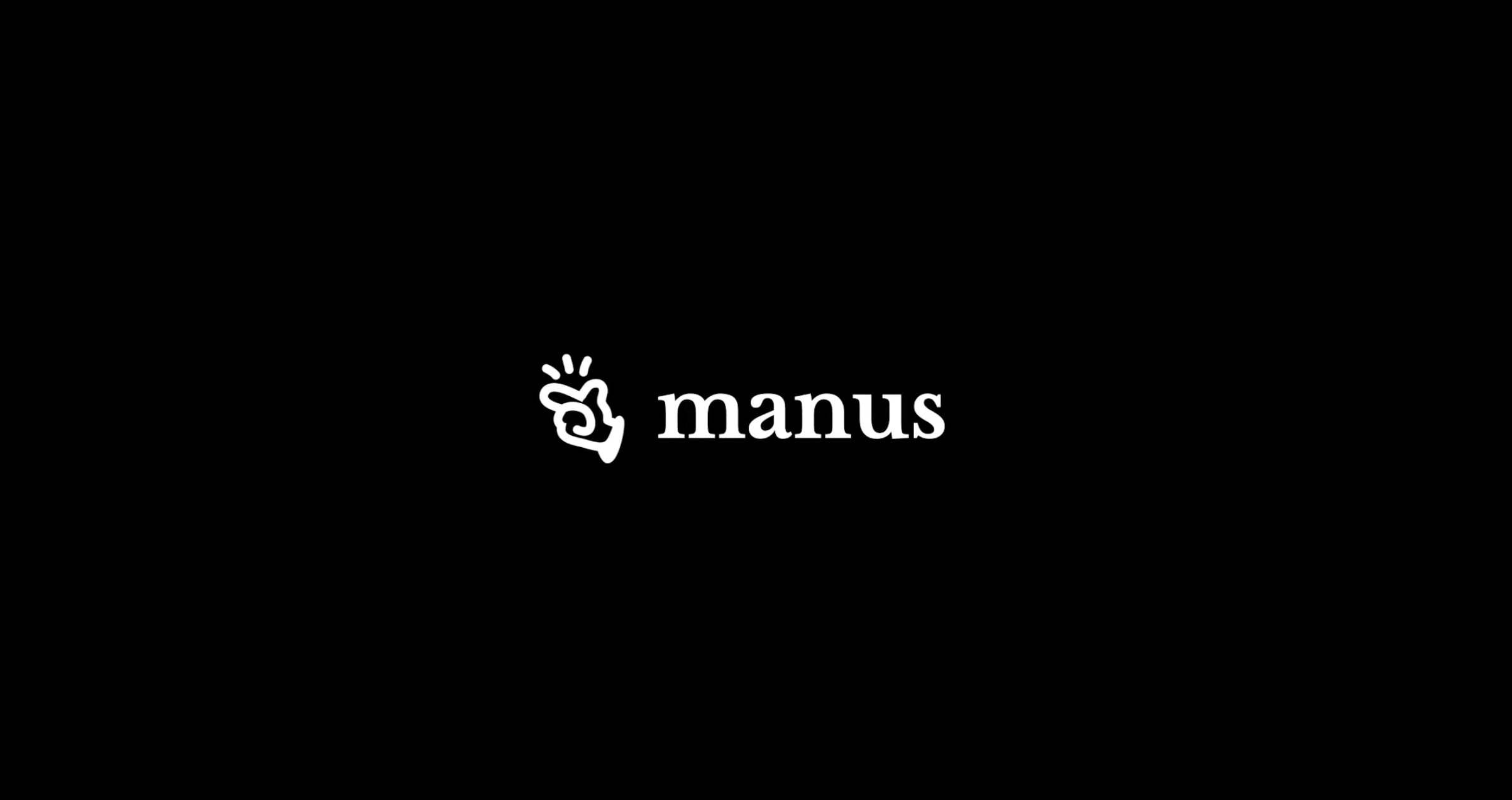
The wind of Manus has finally blown overseas.
Last Wednesday, this general AI agent launched by the domestic startup Monica quickly became the focus of the tech world due to its powerful autonomous task execution capabilities.
In China, Manus is hailed as "the world's first general-purpose AI agent," and its release sparked heated discussions. The development team showcased Manus's applications in tasks such as resume screening, real estate research, and stock analysis, demonstrating its potential in handling complex tasks.
However, despite its explosive popularity domestically, Manus has also faced controversy, one reason being that the discussion has primarily focused on the domestic market, with little attention from overseas.
Starting from the weekend, the situation began to change, as some mainstream overseas media gradually started discussing Manus, and many KOLs have praised it.
1 How does the overseas market view Manus?
Manus is a general AI agent capable of handling complex, real-world tasks across various fields. The startup Monica, which developed Manus, describes this new AI agent as "a bridge connecting thought and action: it not only thinks but also delivers results."
Its developers claim that this new AI agent can autonomously think, plan, and execute various real-world tasks. From creating websites to planning trips and analyzing stocks, Manus can do anything with just a prompt.
After its release on Wednesday evening, discussions about Manus primarily focused on the domestic internet, but interest from overseas began to rise over the weekend.
The product manager at Hugging Face stated after using it, "Manus is the most impressive AI tool I have ever tried.
Its agent capabilities are astonishing, redefining what is possible.
The user experience is what many other tools have promised… but this time it really delivered."
Jack Dorsey, the founder of Twitter, also retweeted a video of Manus AI on X and briefly expressed his praise:
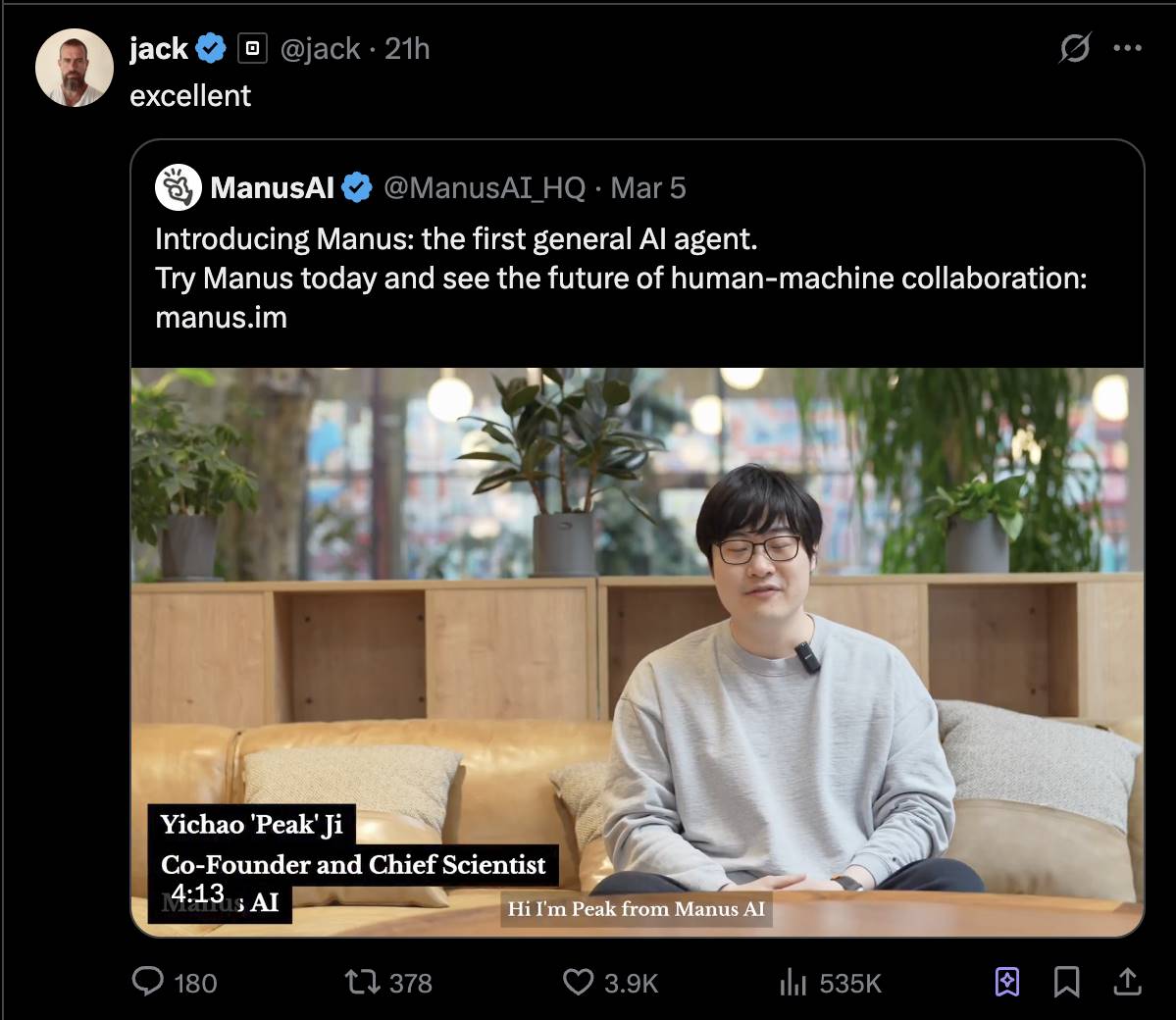
Image source: X
AI policy researcher Dean Ball described Manus as "the most complex computer using AI," even giving it a higher rating than DeepSeek, stating, "DeepSeek is about replicating the capabilities that American companies have publicly achieved, while Manus is pushing the frontier of research."
An overseas software developer, Mckay Wrigley, showcased a 14-minute demonstration of using Manus on X, calling it "shockingly good":
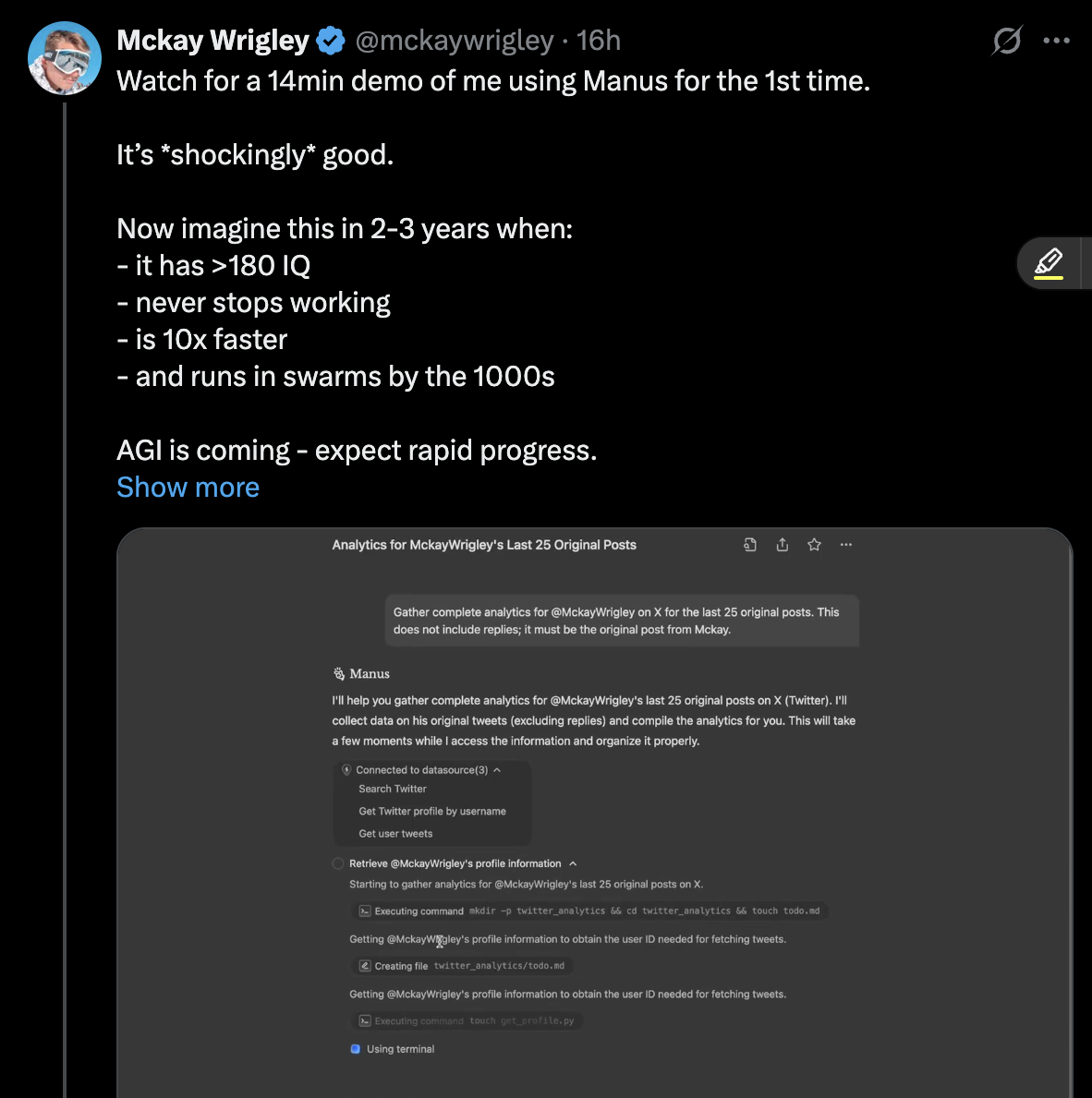
Image source: X
"Now imagine the situation in 2-3 years:
- Its IQ >180
- Never stops working
- 10 times faster
AGI is coming - looking forward to rapid development."
Ivan Fioravanti, co-founder and CTO of CoreViewHQ GenAI, also expressed his amazement on X after using it, saying, "Manus AI is really powerful":

Image source: X
VC Deedy from MenloVentures conducted a professional analysis of Tesla's stock using Manus, completing about two weeks' worth of professional-level work in just about an hour:
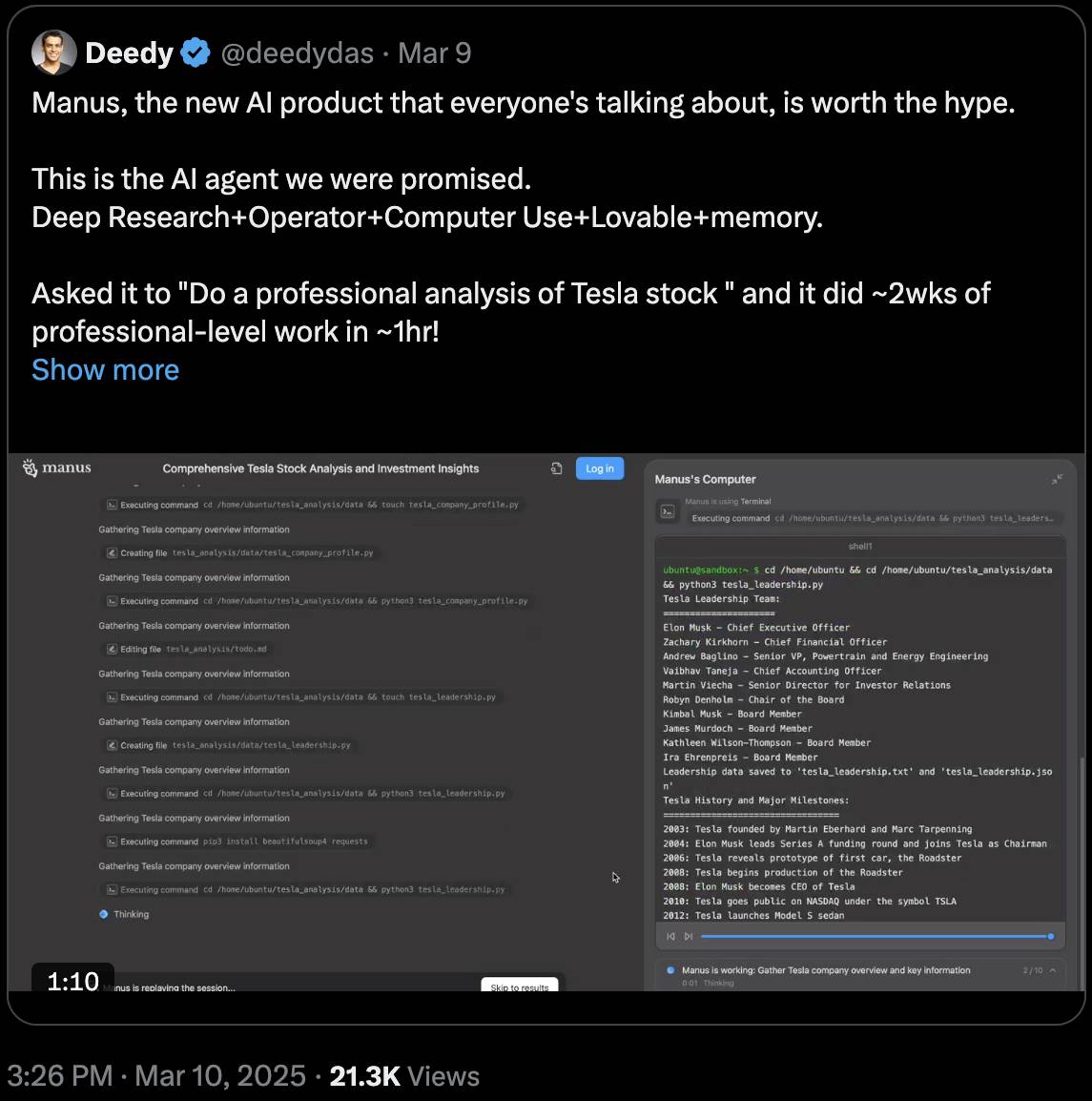
Image source: X
Alexander Doria, co-founder of the AI startup Pleias, experienced several shifts in attitude towards Manus on X, initially writing about encountering error messages and infinite loops while testing Manus:
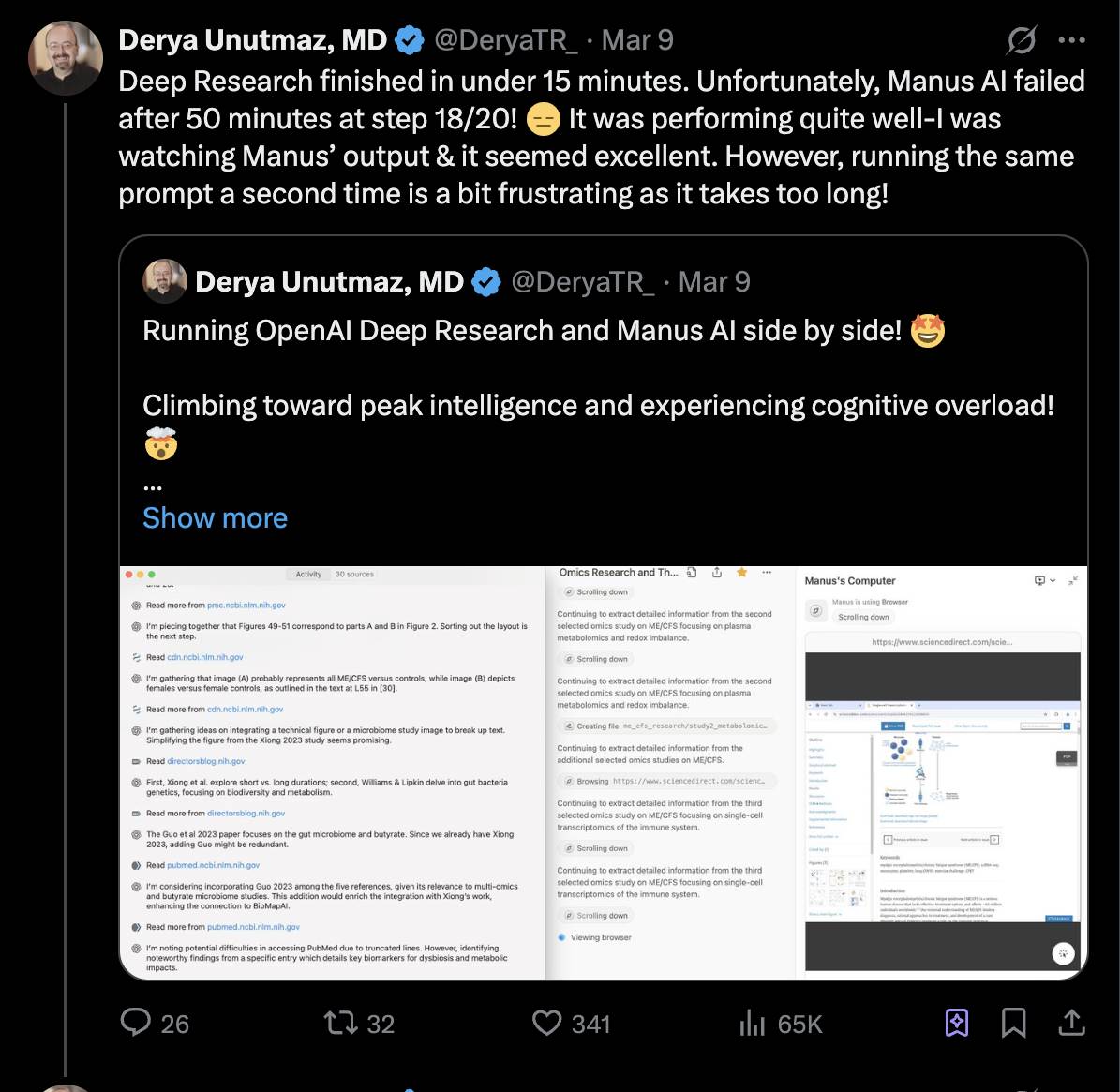
Image source: X
After completing a 75-page scientific report, he stated, "This is indeed another DeepSeek moment for AI agents":
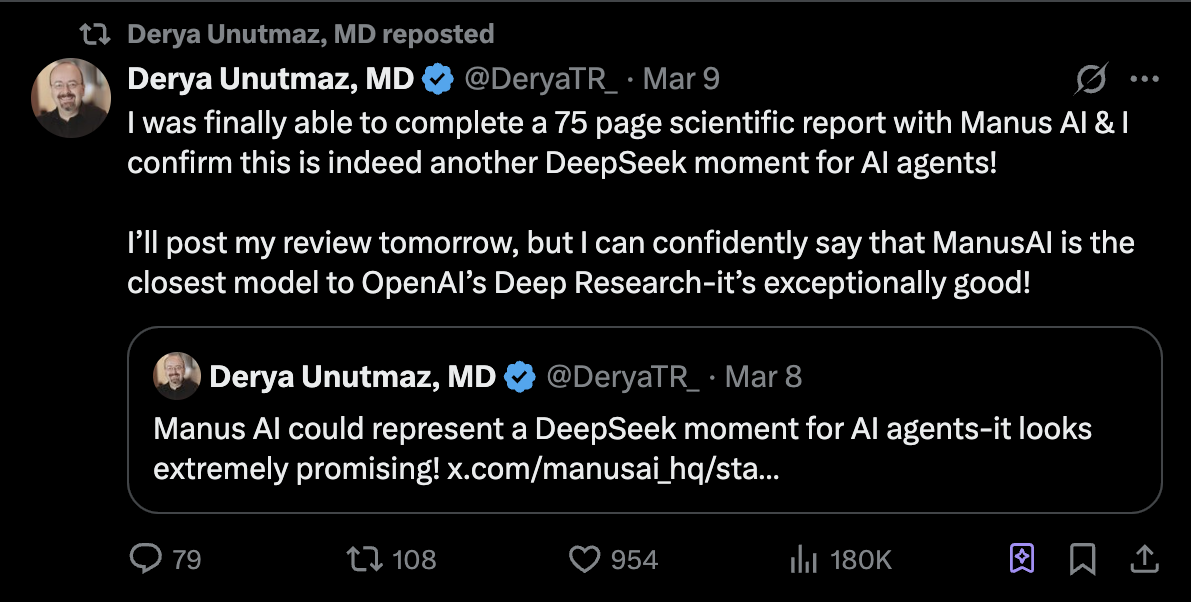
Image source: X
He also mentioned, "The OpenAI o3 model behind Deep Research is much smarter, but as Simon pointed out, Manus AI somehow found a different path, generating output results that are almost equally excellent. It's somewhat similar to what DeepSeek R1 did to o1."
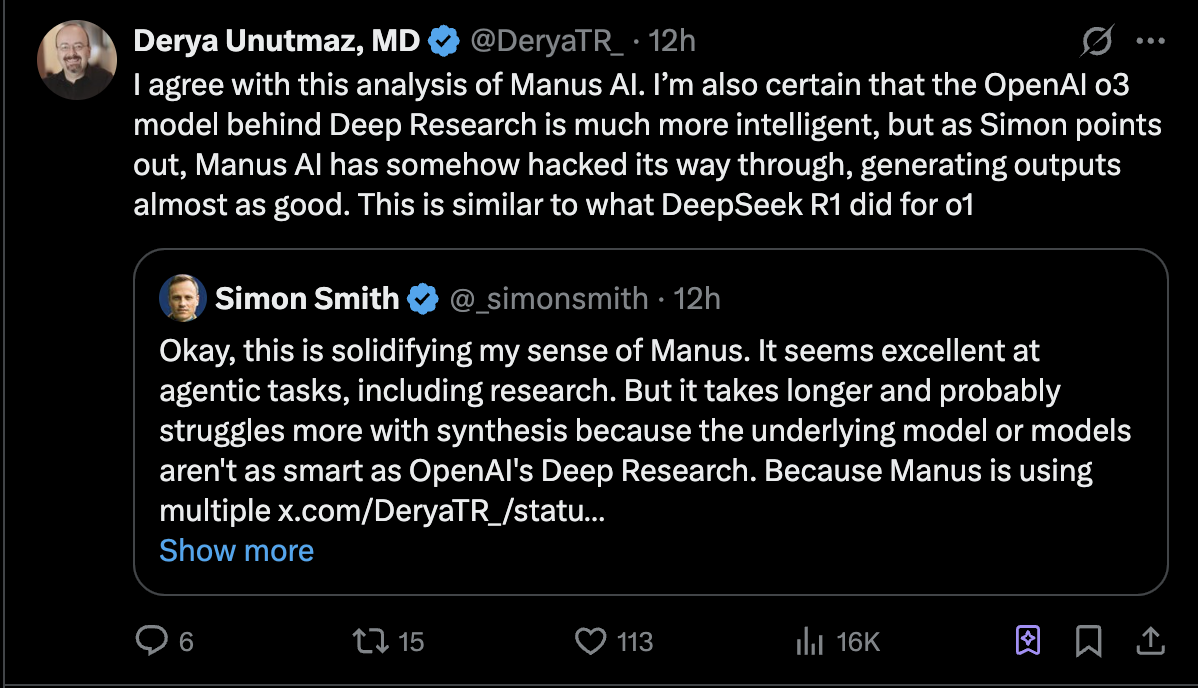
Image source: X
In a recent update about Manus, he also revised his prediction for AGI, increasing the probability of its emergence by the end of the year from 90% to 95%. "The likelihood of it arriving by next year is 99.9%."
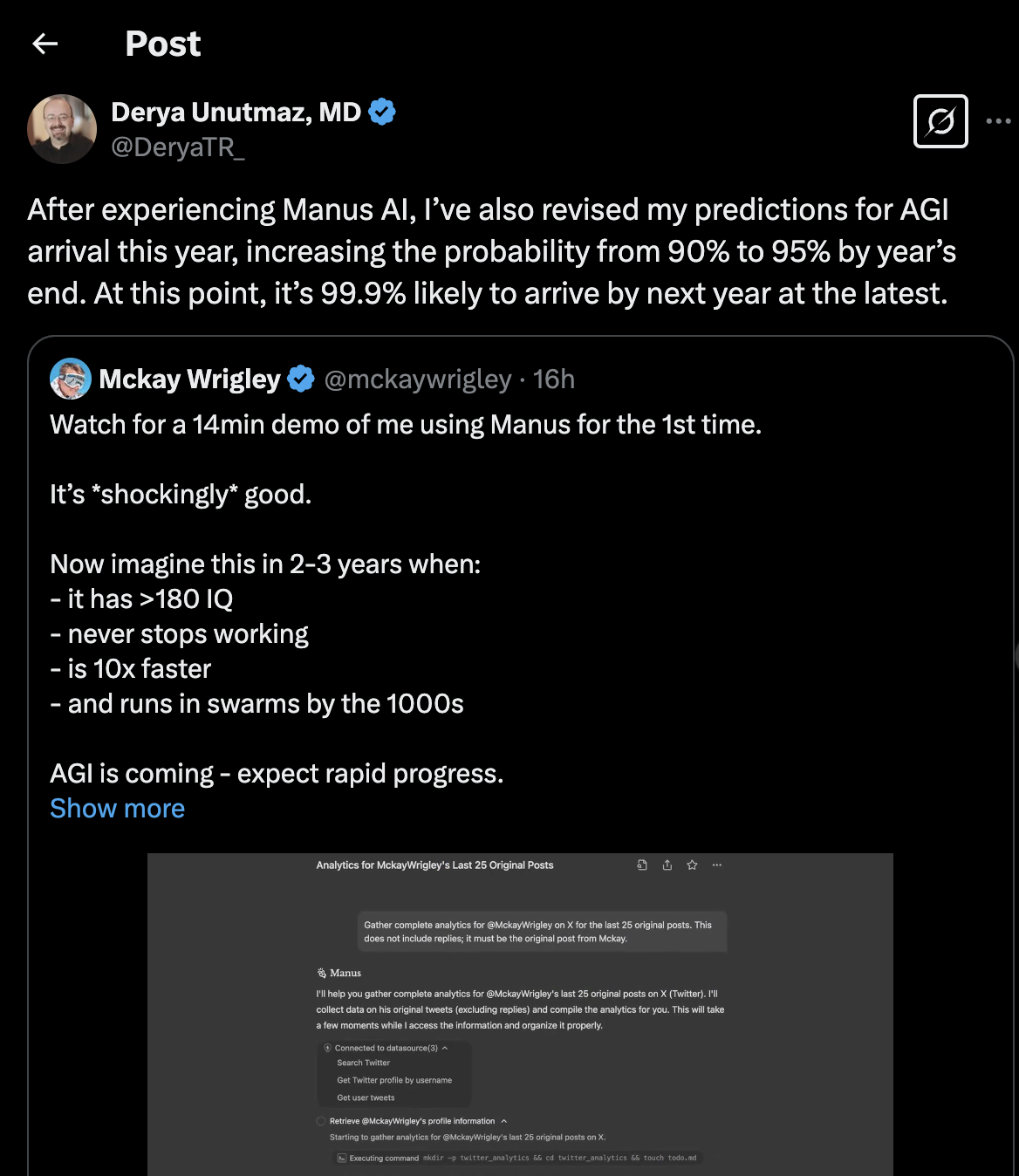
Overseas media have also begun reporting. The Economic Times published two articles, one titled with shock—"Another Chinese company shocks Silicon Valley, Manus AI stuns the tech world with DeepSeek-level performance in handling complex tasks; Is AGI closer than we think?"
The other article, "Manus AI: China's Second DeepSeek Moment," stated that Manus represents a leap towards autonomous AI and discussed how China's positive advancements in autonomous driving systems might give it a first-mover advantage in key areas, further proving that such progress is replicable with the emergence of Manus AI.
In a Forbes report, there was a segment that directly stated, "It is the world's first fully autonomous AI agent that can not only assist humans but also replace them… Essentially, it is a trained polymath capable of managing cross-industry tasks without the inefficiencies caused by human hesitation."
This report pointed out the differences between Manus and similar overseas products, stating, "Unlike ChatGPT-4 and Google's Gemini, which rely on human prompts to guide them, Manus does not wait for instructions. Instead, it is designed to autonomously initiate tasks, evaluate new information, and dynamically adjust its approach. In many ways, it is the first true general AI agent."
Of course, just as some people in China are skeptical about Manus, users on X have also pointed out that Manus can make mistakes when answering factual questions and does not always cite its information sources, often missing easily found information online.
A TechCrunch reporter also wrote about their testing experience, where they simply asked Manus to perform some seemingly simple daily tasks but faced repeated setbacks. For instance, when asked to order a fried chicken sandwich from a fast-food restaurant within delivery range, Manus crashed after the first attempt, and although it found a suitable menu item on the second try, it could not complete the ordering process or even provide a checkout link. Similarly, when booking a business class ticket from New York to Japan, Manus could only provide links to some airlines and flight search engines, some of which were outdated and did not meet the user's specific needs.
But do these bugs sound excusable? After all, Manus is still in the internal testing phase, with limited system capacity, and optimization and improvements are still ongoing.
2 Changing the Game
From domestic to overseas, discussions about Manus continue. In any case, Manus has already changed the game.
For the past three years, artificial intelligence has revolved around AGI, with intelligence seemingly being the only metric for judging an AI product, from GPT-4 to DeepSeek. However, the rise of AI hardware that began last year, along with the emergence of Manus, represents another trend: the application of AI has reached an acceleration point.
Manus has achieved a transformation from the traditional AI's "omniscient and omnipotent" model to an action entity of "unity of knowledge and action," shifting AI from an auxiliary tool to an independent acting entity. It is no longer just about answering questions or providing suggestions; it can autonomously analyze, plan, and execute complex tasks, seamlessly connecting AI's "thinking" with "action."
On one hand, this is not only a technological evolution but also a paradigm shift—AI is no longer passively responding to commands but can autonomously make decisions, execute tasks, and continuously optimize itself without human intervention.
For developers in the AI field, this is the long-sought goal—a system that can not only generate information but also understand, apply, and learn from mistakes. For those relying on Manus to perform tasks, this transformation could mean profound impacts.
On the other hand, Manus seems to have changed the anchor point of competition in the AI industry. In the past, the dominance of artificial intelligence appeared to be in the hands of American tech giants, with the industry's competitive focus revolving around who could train the most powerful large models. The emergence of Manus seems to have broken this setting.
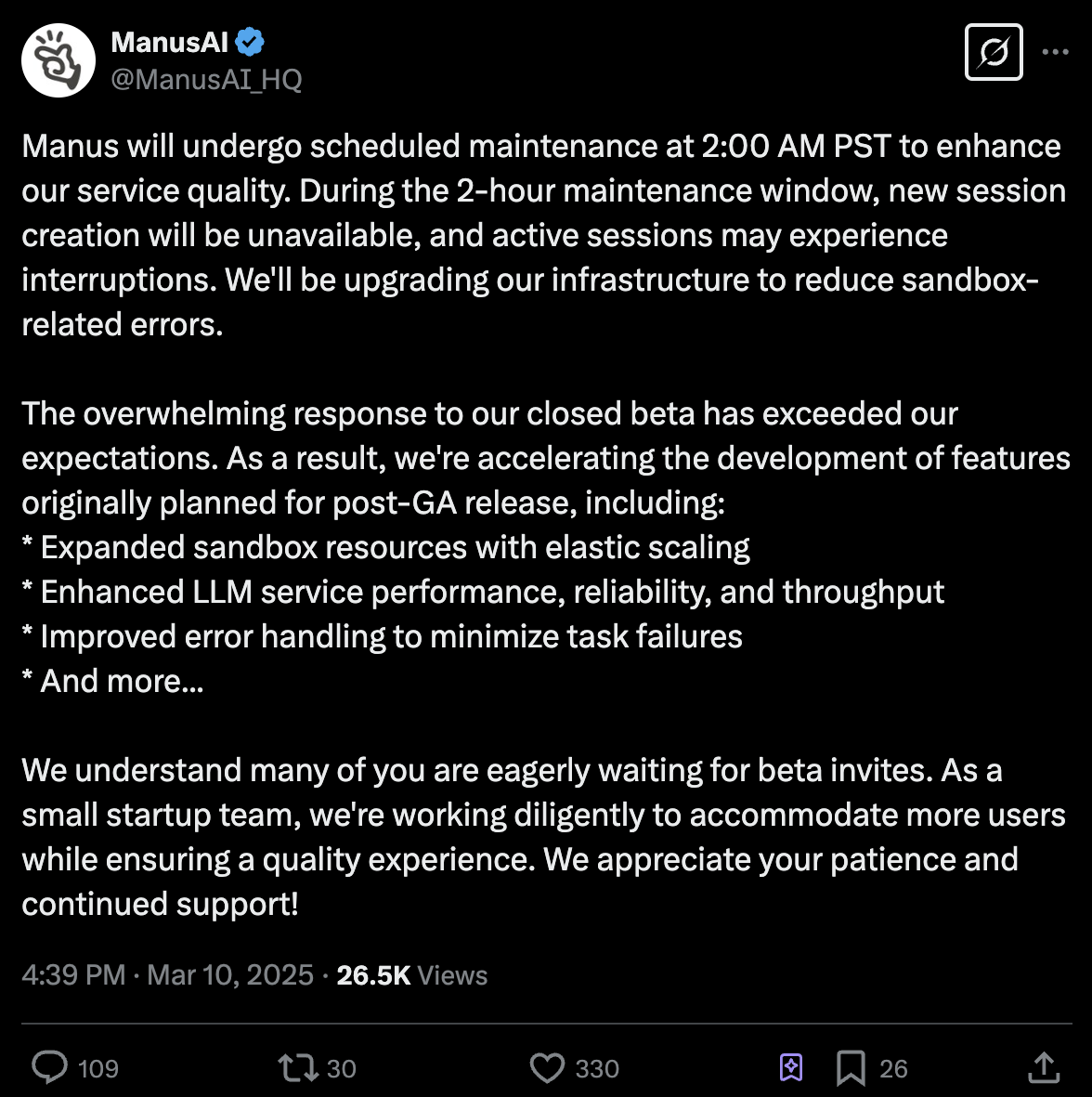
Manus AI announced on X that it will conduct regular maintenance at 2:00 AM Pacific Time | Image source: X
This product may not yet be fully mature, but more importantly, the "unity of knowledge and action" represented by Manus signifies the industrialization of intelligence—such an efficient system will quickly make enterprises realize the necessity of replacing human labor with artificial intelligence, bringing the human-machine relationship to another critical juncture.
免责声明:本文章仅代表作者个人观点,不代表本平台的立场和观点。本文章仅供信息分享,不构成对任何人的任何投资建议。用户与作者之间的任何争议,与本平台无关。如网页中刊载的文章或图片涉及侵权,请提供相关的权利证明和身份证明发送邮件到support@aicoin.com,本平台相关工作人员将会进行核查。



